🧠 What Does It Mean to Live with Autism?
Living with autism means experiencing the world from a unique and profoundly different perspective than most people. Individuals with autism may process sensory input—sounds, lights, language, and emotions—in ways that often don’t align with how others do. It’s not a matter of having fewer capabilities or more limitations, but of possessing a distinctive style of perceiving, interpreting, and connecting with the environment and those around them. This difference enriches their life with nuance, but can also present challenges in communication and social interaction without proper support.
👉 For example, some children on the spectrum may take longer to develop skills like speech or social play with peers—not because they can’t achieve them, but because their learning path is different and deserves respect. Conversely, there are autistic children with extraordinary talents in specific areas, such as recalling details with remarkable accuracy, creating intricate drawings, building complex structures, or spotting patterns in varied activities. These strengths demonstrate how the autistic brain can operate with a surprising level of specialization or focus that enriches everyone’s perspective.
🎯 What truly matters is recognizing that behind every behavior, reaction, or action lies a fundamental need the person is attempting to communicate—be it the need for safety, expression of discomfort, a request for help, or simply a different way of relating to the world. Acknowledging this human dimension is the foundation for building genuine connections and offering supports that truly improve the quality of life for individuals with autism.
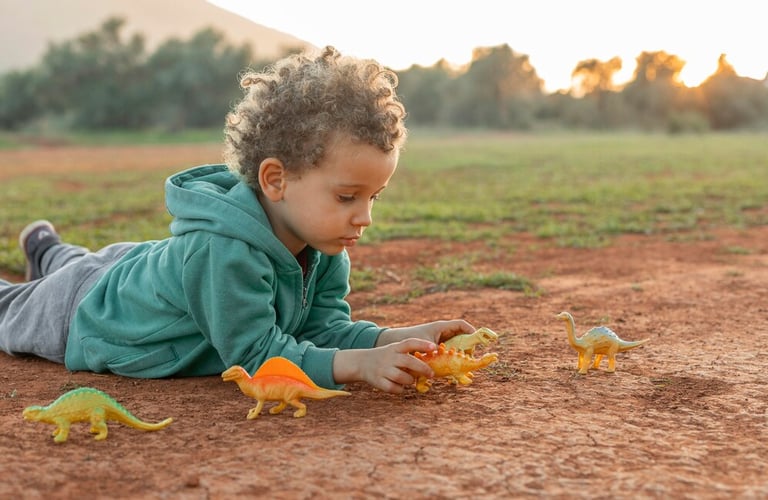

🛠️ What Supports Can Help?
There is no single path or magic formula to support individuals with autism. Each person is unique, and their support needs vary depending on factors such as age, personal interests, communication level, and social environment. It’s crucial to design personalized strategies that respond to their specific traits and promote their holistic development, always honoring their identity and autonomy.
💬 Among the most common and effective supports for people with autism are:
Speech-language therapy: Aimed at improving communication skills—ranging from speech development to language comprehension—using adapted methods to enhance expression and interaction.
Occupational therapy: Focuses on enhancing motor and sensory abilities relevant to daily life, encouraging independence in activities like dressing, eating, or handling objects, and addressing sensory integration to reduce overload or extreme sensitivity.
Visual supports: Include pictograms, visual schedules, image or symbol cards, illustrated calendars and timetables. They provide clarity and structure, facilitating anticipation and comprehension of activities, which helps reduce anxiety and enhance participation.
Calm, predictable spaces: Creating safe, organized environments is key for emotional regulation. These areas should be stable, with few distractions, serving as refuges where the individual can rest and recover from stressful situations.
Interest‑based, motivating activities: Supporting each person’s specific interests is a powerful way to foster learning, communication, and social skills. Motivation leads to genuine engagement and willingness to participate and grow.
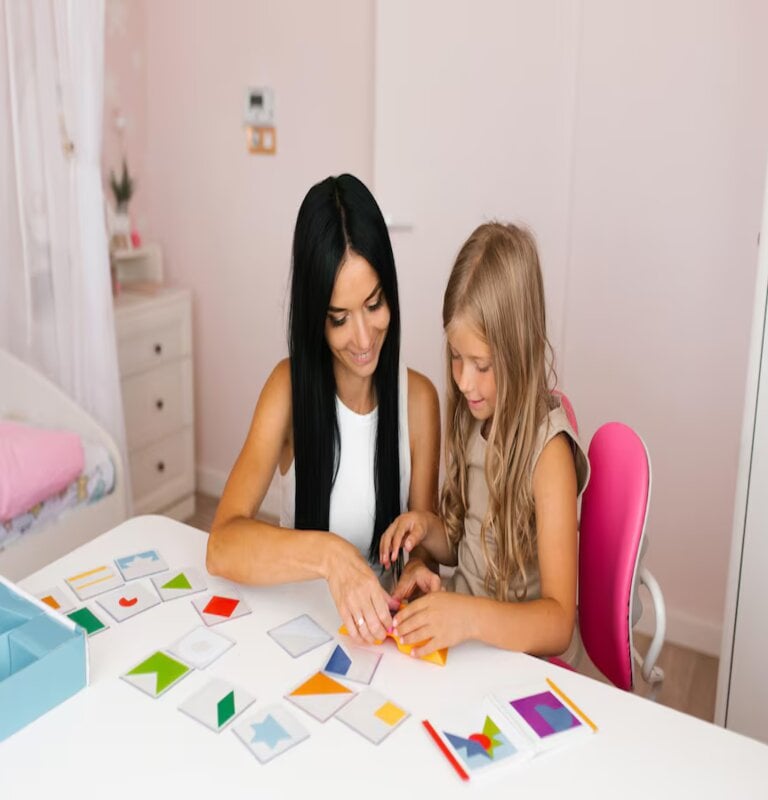

💡 How to Foster True Inclusion
True inclusion goes far beyond simply allowing a person with autism to be physically present in a school, community center, or public space. Genuine inclusion means transforming the space into an environment that is truly accessible, respectful, and empathetic—one that values diversity and ensures full, meaningful participation for all individuals, regardless of their differences.
🤝 To achieve real inclusion, it’s essential to follow key guiding principles:
Speak about autism naturally and without fear, using clear, accurate, and respectful information to dispel myths and promote understanding.
Incorporate adapted materials in educational and family settings—such as visual aids, technological supports, or flexible methodologies—to facilitate access to learning and communication.
Teach the entire community to respect and value differences, by encouraging empathy and coexistence based on acceptance of each individual’s uniqueness.
Listen actively and sincerely to autistic individuals and their families, recognizing their experiences and knowledge to build solutions that meet real needs.
Work continuously to eliminate prejudice and stereotypes, understanding that there is no single “correct” way to be, feel, or learn, and that diversity is a richness that benefits everyone.


🌟 The Importance of Respectful Language
The words we choose when talking about autism are not mere labels; they have a profound impact on societal perception, the self-image of autistic individuals, and the foundation of an inclusive, respectful environment. It’s essential to use language that reflects dignity, respect, and recognition, while avoiding expressions that are stigmatizing, limiting, or derogatory.
✅ For example, saying “autistic person” or “person with autism” acknowledges identity without pathologizing or reducing the person to their diagnosis.
❌ In contrast, avoid terms like “suffers from” or “is a patient of,” which imply a negative, medicalized view that doesn’t represent the human value of those living with autism.
✅ Similarly, phrase like “has a different way of communicating” highlights diversity in expression and language.
❌ We should steer clear of phrases like “doesn’t relate” or “doesn’t understand,” which dismiss and generalize unfairly, minimizing the diverse ways of connection that exist.
Respectful language builds bridges, promotes inclusion, and strengthens self-esteem, contributing to creating a more just and compassionate society.


📘 Recommended Books, Films & Resources
Learning more about autism not only helps better understand those who live with it, but also serves as a vital tool to build empathy and foster inclusion. There are numerous resources covering autism from different viewpoints, which can be very helpful for families, educators, professionals, or anyone interested in deepening their knowledge.
📚 Books to consider:
The Autistic Brain by Temple Grandin — Offers scientific and personal insight into how autistic brains work and their unique abilities.
¿Quién se ha llevado mi silla? by Juana Hernández — A clear and didactic book that helps understand children with autism from their own perspective.
Autismo: Cómo intervenir desde casa by Anabel Cornago — Offers practical tools for families to support their child’s development at home.
🎬 Films & series worth watching:
Temple Grandin — A biopic that portrays the life of an autistic woman who changed how animals and disability are understood.
Atypical (Netflix) — A thoughtful, humorous series about a teenager with autism and his family.
El faro de las orcas — A film depicting the special bond between an autistic child and a caregiver, highlighting emotional connection and respect.
These materials don’t just inform—they also raise awareness, helping to break down barriers and promote an inclusive culture.


💬 💬 Listening to Autistic Voices: The Most Important Perspective
No guide, handbook, or theory on autism is truly complete without the direct, lived experience of autistic people. They are not passive subjects of study or diagnosis, but the central storytellers of this narrative—expressing their emotions, perspectives, and real needs. It is vital that in any autism‑related field—education, social, clinical, or employment—we actively listen with respect and openness to what autistic people have to say. Only through their authentic testimony can we truly understand how they feel, think, and experience the world.
This approach demands a profound shift in how society engages with autism. It’s no longer just about applying protocols or external interventions, but about establishing genuine dialogue with those who live autism firsthand. Each testimony, each experience, each unique way of being and communicating provides invaluable insights that academic theories or statistics cannot replace. Listening to autistic individuals means acknowledging them as rights‑bearing individuals, with autonomy, desires, skills—and an identity deserving of respect.
🎙️ A poignant statement that embodies this belief is:
“Being autistic doesn’t make me less, it makes me different. And being different is not something that needs fixing.” — Anonymous testimony
These simple but powerful words challenge us to change our perspective and dismantle ingrained prejudices that equate difference with deficiency or the need for correction. Neurological diversity is an expression of human richness, and autistic people bring unique ways of understanding and relating to the world—not errors to correct, but legitimate and valuable variants of the human condition.
Listening to these voices means more than hearing—it means opening our hearts to the value of authenticity, self‑identity, and the freedom to be oneself. In a world that often seeks to standardize how we are and how we think, autistic voices represent an urgent call for genuine inclusion, deep respect, and unconditional acceptance.
Moreover, these experiences offer key guidance for improving the lives of individuals with autism. They show us which supports are truly helpful, which practices or environments can be harmful, and how to build friendlier, more accessible spaces. They also help dismantle myths and false beliefs that isolate and stigmatize, instead promoting a culture of understanding and solidarity.
Ultimately, recognizing and valuing autistic voices is the essential first step toward building a more just, inclusive, and humane society. It is an act of justice, dignity, and respect, inviting us to look beyond diagnoses to discover the richness of each individual—their talents, dreams, and rights.
Therefore, any effort to support, empower, or enhance the well‑being of people with autism must begin with active, continuous listening to their voices. They are the true guides to understanding what it means to be autistic and how we can walk together toward a world where all differences are celebrated.




🧠 Frequently Asked Questions (FAQ)
🔹 Can autism be cured?
No, autism isn’t a disease or disorder that can be cured. It’s a lifelong neurological developmental condition. However, with appropriate supports, personalized interventions, and a compassionate environment, every individual can develop their skills to the fullest, lead a fulfilling life, and contribute to society in meaningful ways.
🔹 Is it possible to have autism without it being noticeable?
Yes, absolutely. Many autistic individuals—especially women and those with high cognitive abilities—learn to “mask” their traits to fit in socially, which can delay diagnosis and recognition. This masking requires significant emotional effort and may cause stress—so it’s important to be alert to subtle signs.
🔹 Does autism always involve intellectual disability?
Not at all. Autism covers a wide spectrum and each person is unique. Some autistic individuals have intellectual disability, while others have average or above-average IQ. It cannot be generalized or reduced to a single characteristic.
🔹 Can autistic people have friends or romantic partners?
Of course! Their ways of relating may differ from typical forms, but autistic individuals desire and value social and emotional relationships. With respect, open communication, and mutual understanding, friendships, romantic relationships, and family bonds are possible, enriching, and essential for emotional well-being.
🏫 🏫 Autism in School
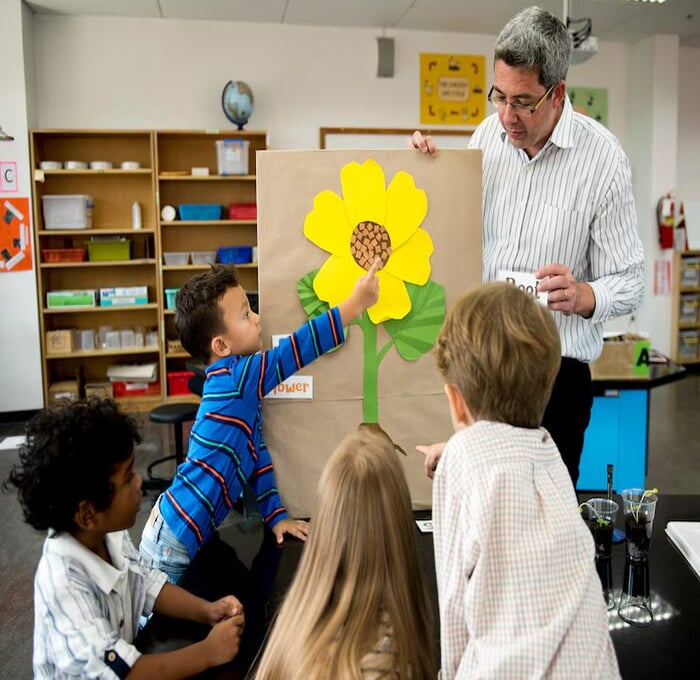

School should be far more than an academic institution—it must be a holistic space promoting emotional, social, and cognitive well-being for all children, including those with autism. This requires understanding that each child is unique, and differences in learning, communication, and social interaction should be respected and valued. To achieve this, inclusive, adaptive, and flexible educational practices are essential to ensure active participation while nurturing each autistic child’s skills and personal development in a safe, motivating environment.
🔹 Key recommendations for an inclusive and enriching school environment:
Create clear, visual routines: Use schedules, calendars, or visual boards to help students understand the day’s structure. This reduces anxiety from uncertainty or unexpected changes and offers a stable, predictable framework for the child to feel safe.
Use specific visual supports: Tools like pictograms, images, illustrated planners, or visual signals help simplify communication and time management. These resources are particularly valuable for making instructions clearer and allowing the child to anticipate and prepare for classroom activities.
Allow breaks and quiet spaces: Acknowledge the need for children to withdraw temporarily to a calm space when overwhelmed. These rest moments help avoid stress and support emotional regulation.
Promote peer empathy: Encourage respect and acceptance using games, stories, and group activities that raise awareness about diversity and inclusion. This builds a supportive, understanding environment where every child feels valued.
Avoid forcing social or physical interaction: Respect personal boundaries and each child’s preferred way of relating. Pressuring interaction can cause anxiety or discomfort—so always honor their personal space and timing.
Consistent and sensitive implementation of these strategies not only fosters an inclusive school setting, but also boosts autistic students’ self-esteem and makes their learning more meaningful and rewarding.


👨👩👧👦 The Role of the Family
The family is the first and most important refuge for someone with autism—an essential team supporting growth, development, and well-being throughout life. Family involvement is vital in providing the emotional support, stability, and security needed for full development. Additionally, the family acts as a bridge to the outside world, facilitating integration and creating a warm, understanding environment.
❤️ How to support from home? Key guidelines:
Listen and observe without judgment: Every small step is a victory that deserves recognition. Careful observation helps identify needs, interests, and changes to guide support. Unconditional acceptance creates a safe, nurturing environment.
Celebrate every achievement: Acknowledging progress motivates, builds confidence, and strengthens self-esteem. Simple yet meaningful celebrations show the child their efforts are valued and that every step matters.
Keep stable routines and use visual cues: Routines create security and reduce anxiety, while visual anticipations prepare the child for what’s coming, helping with understanding and adaptability. This provides predictability and order in daily life.
Keep learning about autism: Staying informed about autism’s traits, challenges, and strengths enables families to better meet changing needs. Knowledgeable families create more sensitive, inclusive, and supportive environments.
Ask for help when needed: This is not a journey to face alone. Professionals, support groups, family networks, and organizations offer resources and guidance at every stage. Seeking help is a sign of strength and responsibility.
📢 It’s essential to understand that receiving a diagnosis is not an endpoint—but the beginning of a journey filled with opportunities, resources, and tools that enable every autistic person to reach their full potential and lead a happy, meaningful life.
👦 Adolescence and Autism
Adolescence is a challenging phase for everyone, but for autistic individuals, it can bring extra emotional, social, and physical hurdles. This period involves deep transformations and requires sensitive, respectful support tailored to each teen to promote healthy growth and well-being.
🔍 Key aspects to consider during this stage:
Hormonal changes increasing sensitivity: Adolescent hormonal fluctuations can heighten sensory and emotional sensitivity, making situations more intense. These may trigger crises or anxiety requiring understanding and specific coping strategies.
Vulnerability in self‑esteem: Teens with autism may feel misunderstood or unaccepted, affecting their self‑image. It’s crucial to provide an environment where they feel valued, understood, and supported in their uniqueness.
Address sensitive topics clearly: Subjects like the body, privacy, emotions, and interpersonal relationships should be discussed honestly, sensitively, and appropriately, enabling teens to understand and navigate them safely and healthily.
Balancing independence and support: Respecting teens’ autonomy and self‑expression is vital, while maintaining a caring presence that listens without intruding, supports without pressuring, and respects their timing and choices.
Striking this balance between independence and guidance is fundamental to ensuring a successful transition to adulthood, promoting emotional well-being and holistic development.
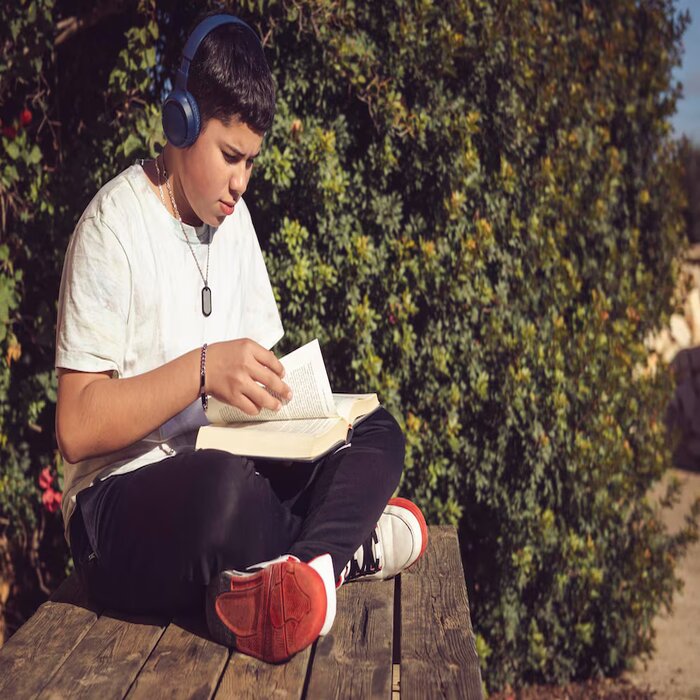

💼 Autism and Employment


Autistic individuals have the right and ability to integrate into the world of work—provided workplaces are accessible, inclusive, and free from prejudice. Embracing diversity in the workplace enriches organizational culture and boosts innovation, creativity, and overall employee engagement.
🏢 How can companies support inclusive employment?
Offer structured, clear hiring processes: Design interviews and assessments that reduce uncertainty and anxiety, allowing candidates to demonstrate true skills and competencies comfortably.
Adapt the workspace: Consider sensory sensitivities—adjust lighting, reduce excessive noise, provide quiet zones or rest spaces to create a comfortable, supportive environment.
Respect routines and schedules: Recognize that some individuals require specific breaks and working hours to perform effectively and calmly. Offering flexibility improves performance and well-being.
Value specific strengths: Recognize and harness special talents—such as strong attention to detail, exceptional memory, creativity, analytical thinking, or high-level logic. These abilities can greatly benefit various roles and projects.
🎯 True workplace inclusion begins with genuine respect, deep empathy, and a commitment to creating environments where every individual can contribute, grow, and thrive—fostering a diverse, equitable, and enriching setting for all.


"All my life I felt different and didn’t know why. Getting the diagnosis was a relief. Today, I understand my way of seeing the world and I’ve learned to respect it. I don’t want to change—I want to be myself with real support."
— Lucía, 27 years old – diagnosed at 25


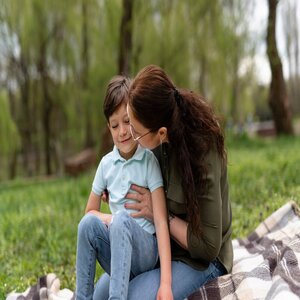



"I was afraid of not knowing how to support my student with autism. But I learned that the most important thing is to listen, respect their timing, and never force them. Their way of learning is different, not inferior."
— Leandro, elementary school teacher
"At first, I was scared. I didn’t know what autism was. But over time, I understood that it’s not a tragedy—it’s just another way of being. My son teaches me every day to see the world through different eyes."
— Miriam, mother of Tomi (8 years old)
"Working with autistic children is a constant learning experience. Every day, they teach me about resilience, creativity, and sensitivity."
— Valeria, occupational therapist
💬 Testimony from an autistic person
💬 Testimonio de una persona autista empleada
💬 Testimony from a mother
💬 Testimony from a teacher
💬 Testimony from an occupational therapist


"I got my first job thanks to a company that gave me the chance to show what I can do. I don’t need pity—just respect and the right tools."
— David, 32 years old, IT employee
🧩 Free Resource for Families and Professionals
We're gifting you a PDF activity kit, ideal for children with Autism Spectrum Disorder (ASD). It includes cutout cards, games to stimulate attention, coloring activities, playful dynamics, and much more.
📚 This material has been compiled from various autism communities with the goal of sharing, supporting, and enriching learning through love and inclusion.
💖 Download it for free and start enjoying it today!
📥
Are you a Professional or Do You Provide Services Related to ASD?
At MiRutaTEA, we're developing a new section where therapeutic companions, psychologists, speech therapists, psychopedagogues, specialized teachers, and other professionals can showcase their services through our app and website.
🧩 What Will You Be Able to Offer?
Therapeutic services, school support, or stimulation.
Workshops, group activities, or intervention proposals.
Links to your social media or professional website.
Contact information so families can easily find you.
💙 How to Join?
We'll soon launch a low-cost monthly subscription system so you can be part of our community. In the meantime, you can complete the contact form and tell us about your work.
🚀 Join a Network Designed to Connect Families with Professionals Committed to the Inclusion and Well-being of Individuals with ASD.
🔗 One Click Makes a Difference
Follow us on social media and help us reach more families with information about autism and alternative communication.
📲 Your support means a lot! 👇
💙 At MiRutaTea, we believe in the power of every voice.
Your experience can support, inspire, and help someone feel less alone.
🧩 Click the button and join the blog: read, share, and be part of the conversation.
This space is yours too.
